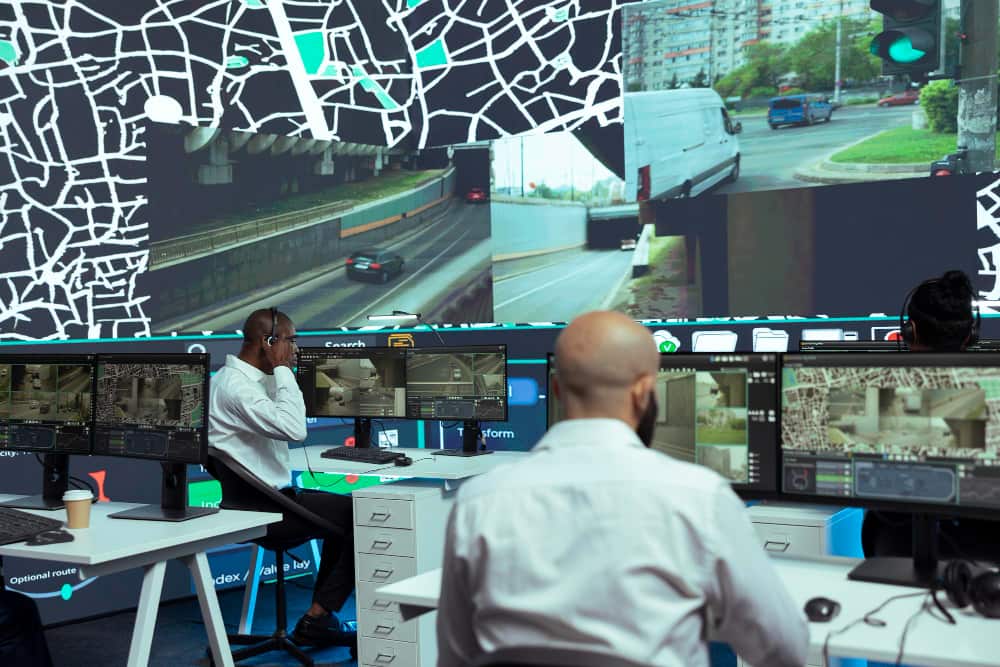
Transparent Surveillance Systems, A Guide for Ethical Urban Developers
The glow of camera lenses now rivals city lights in our urban landscapes. From traffic sensors to facial recognition, surveillance technologies promise safer streets and efficient services. Yet in Melbourne's smart precincts and Sydney's innovation districts, a quiet unease grows among citizens who wonder: Who watches the watchers? For urban developers and planners, this isn't just a technical challenge—it's an ethical imperative that could define the soul of our future cities.
The Transparency Imperative in Smart Cities
Surveillance systems in smart cities collect staggering amounts of data—license plate scans, foot traffic patterns, even biometric identifiers. When Perth deployed AI cameras without public consultation in 2022, backlash forced a costly rollback. The lesson? Efficiency without ethics breeds distrust. Transparency transforms surveillance from a perceived threat into a tool for community benefit. It answers critical questions: What data is collected? Who accesses it? How are biases mitigated? Without these answers, even well-intentioned projects risk becoming digital panopticons that erode the social fabric they were meant to protect.
Ethical Frameworks for Urban Surveillance
Leading cities now adopt "privacy-by-design" principles, embedding ethics into infrastructure blueprints. Barcelona's Decidim platform exemplifies this, allowing citizens to audit surveillance algorithms through public dashboards. Similarly, Copenhagen's Data Ethics Charter mandates that urban developers:
- Conduct Privacy Impact Assessments before installing sensors
- Anonymize data at collection points (e.g., blurring faces in real-time)
- Sunset data automatically after 72 hours unless legally required
- Establish citizen oversight boards with veto power over surveillance zones
These frameworks shift surveillance from extraction to collaboration, treating citizens as stakeholders rather than subjects.

Practical Implementation Strategies
For developers launching smart city projects, transparency manifests in tangible design choices:
Technology Selection
- Choose edge computing devices that process data locally instead of cloud servers
- Implement differential privacy techniques adding statistical noise to datasets
- Install visible indicator lights on all sensors showing active recording
Community Engagement
- Host "tech literacy workshops" explaining surveillance benefits/risks
- Create physical kiosks in high-surveillance areas displaying real-time data flows
- Adopt participatory budgeting letting neighborhoods vote on surveillance budgets
The City of Adelaide reduced privacy complaints by 68% after replacing CCTV warning signs with QR codes linking to live data audits—proving that transparency builds trust.
Navigating Legal and Social Pitfalls
Australia's fragmented regulations—from the Privacy Act 1988 to state-level guidelines—create compliance mazes. When deploying surveillance:
- Avoid function creep: Cameras installed for traffic management shouldn't morph into policing tools without new consent
- Audit algorithms quarterly for racial/gender bias (e.g., facial recognition errors in diverse communities)
- Respect sanctuary spaces: Schools, religious sites, and hospitals deserve surveillance opt-outs
The failed "Safe City Cameras" program in Darwin illustrates the cost of oversight: $4M in equipment was deactivated after Indigenous communities demonstrated how cameras violated cultural privacy norms.
The Future of Ethical Urban Observation
Tomorrow's transparent surveillance won't hide behind black domes. Singapore now tests "explainable AI" cameras that display their purpose on screens when citizens approach. Amsterdam issues "data trust certificates" for ethically compliant developments. As Australian cities accelerate smart initiatives, the developers who champion radical transparency won't just avoid backlash—they'll build communities where technology serves dignity first.
